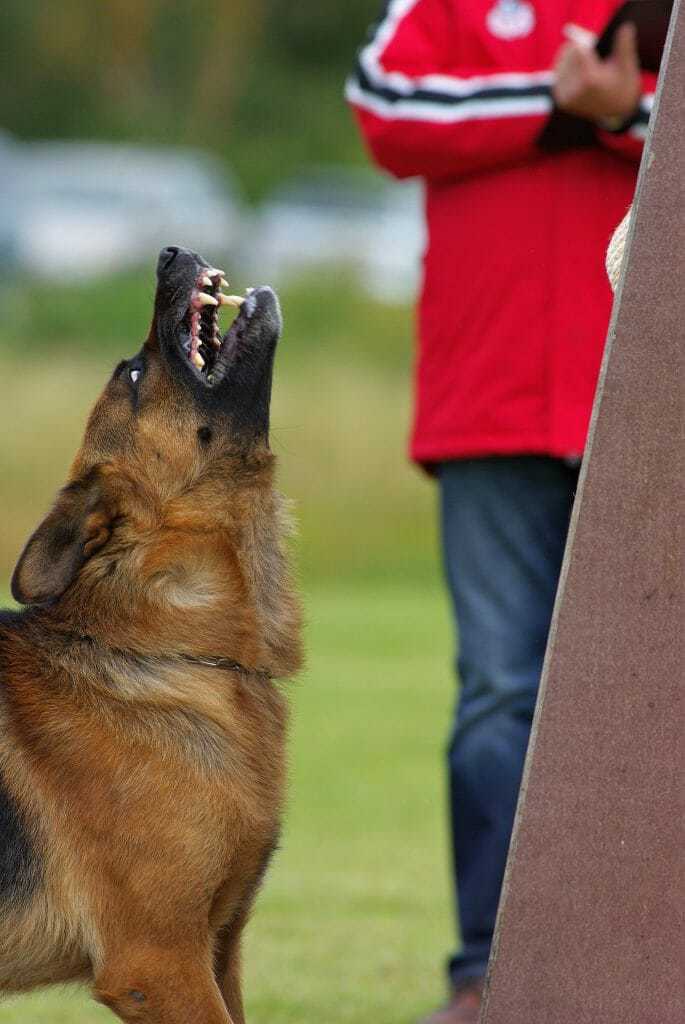On a wonderful, run-of-the-mill Fourth of July holiday with fireworks earlier this month, Southern California was hit with two consecutive, horrible earthquakes. Just before the first earthquake, being a SoCal resident, our pets began to bark, squack, and whimper. My dog immediately jumped up, only to begin barking at us with a ferocity and sense of urgency that worried us, running in circles. Seconds later, it was clear that his barking was a warning, an indication of the incoming 6.9 earthquake. Our house shook, as any furniture not earthquake-strapped was thrown across the room as if an invisible hand was reaching into a toy home.
My family and I grabbed our pets and ran, seeking shelter in doorways, underneath tables, slowly making our way outside as advised since we were in grade school. After about 20 seconds, the earthquake was over, but the shock wasn’t. My dog’s indications before the earthquake gave our family a couple seconds more than we would have had. And the next earthquake, just a day later, he acted agitated once again – this time saving our family from a 7.1 earthquake on the Richter Scale. But it led me to the question I had been ruminating over in my mind – did my dog really sense earthquakes before they hit?
Earthquakes often follow fault lines and can cause fatalities, which is why any ability to be given extra time to prepare is crucial.
The Science
As a prolific scientist and soon-to-be doctor, this mystery was right up my alley way. I dove into research studies on animal behavior to find that Unusual Animal Behaviors, or UABs, were found before the destructive Japanese earthquake of 2011 as well. As it turns out, about 20% of dog owners noted their dogs acting agitated or restless minutes or seconds before the earthquake hit. While scientists and researchers haven’t been able to conclusively state exactly why some animals, dogs included, are indeed able to sense earthquakes, many postulate it has to do with their hearing and olfactory capabilities.In fact, before an earthquake hits, many animals have been seen to move away days before from the epicenter of the earthquake. Cows have even stopped producing milk in anticipation of earthquakes. For dogs, most agitated behavior appears between approximately 24 hours to the seconds before the earthquake itself hits. Some dogs will work themselves up to the point where they may run or try to even escape.

Agitated behavior before an earthquake has been documented in all kinds of animals, from dogs to cows.
Scientifically, the hearing range for dogs is from 67 Hz to 44,000 Hz. The greater the number of Hertz (Hz), the higher pitch the sound takes on. On the other hand, studies have shown that humans have no where near the hearing abilities of a dog – ranging from 31 to 17,000 Hertz. While this allows us to hear marginally lower noises, it does prevent us from seeing or hearing higher noises which may alert dogs to the incoming earthquake due to the vibrations from the shifting of the tectonic plates.

Dogs rely on their hearing and smelling capabilities much more than humans do.
In a similar line of thinking, the olfactory senses of dogs are also much superior than that of humans. We all love and know that our dogs rely on their noses more than they do their eyes, in comparison with our human senses. Better smell in animals is dependent on the number of olfactory cells in the nose. In this competition, our dogs beat us by over 270 million cells. Humans are known to have anywhere between 5-10 million cells, while dogs have, on average, 280 million, varying depending on the breed.
These senses, when disturbed, may lead dogs to exhibit this worrisome UAB behavior, serving as a potential warning for owners of a serious incoming earthquake. Changes in the environment such as a change in atm (atmospheric pressure), changes in balance, due to alterations in the gravitational force of the earth, tilts from the tectonic plates, and vibrations from the building pressures and gases are minuscule and undetectable to humans, but may be detected by our dogs: a way of mother nature warning us before the Big One hits.

Some dogs will display agitated behavior during the buildup to an earthquake, even acting aggressively and howling.
Agitated behavior and warning signs vary from dog to dog, but some “tells” include sniffing frantically, whining, running in circles, acting generally restless, pacing, running outside, howling, and jumping. While these behaviors may be uncommon for some dogs, they are plenty common for other breeds – take the way your dog is behaving with a grain of salt in context with their surroundings. Oftentimes, you’ll be able to tell the difference between agitated behaviors due to seismic movement and a dog excited to play fetch.
Preparing For An Earthquake
In case an earthquake hits where you and your lovely pup live, be aware of what to do. Understand that while it is a possibility that your dog may alert you, there is also a possibility that your dog may not sense anything before the earthquake hits either. Some dogs who are hard-of-hearing, or have ears not conducive to hearing high-pitched noises may not be able to sense it or give you a warning.
Be sure your dog has dog tags with his name and essential contact info!
However, always have a plan regardless. Keep pictures of your pup and registration paperwork digitally saved as well as secured in a safe location in your home. Always have extra snacks, canned and dry food, and water available for your dog in your first aid/emergency kit in an accessible location after a potential earthquake. Ensure your dog has an ID tag hooked around his or her collar, with two different phone numbers to reach in case of emergency. An address, or even your own or the official owner’s name is a good idea to stencil on to the dog tag if possible. Ensure you have your dog chipped early on, which can come in handy not just in case of an earthquake, but in any scary scenario.

Our hero-puppies can get scared by quakes too. Be sure to keep an eye on their behavior after the quake too.
While our dogs are wonderful heroes in our hearts, it is only natural that they get scared. Dogs, when frightened, will often search for a place to run to our hide in. During an earthquake, they may attempt to run underneath something to stay safe, or run outside, away from what they perceive as the source of the danger. For preemptive measures, keep an eye on where your dog like to hide, and be aware that they may seek safety there. Check to ensure that hiding location is safe and structurally solid.
If an earthquake does hit, take cover and take note of your dog’s behavior. It might just save your life!
Here’s a video of a dog realizing an earthquake’s about to happen!
During An Earthquake
When an earthquake hits, be sure to follow protocol. Run outside or in a doorway, hide under a secure table, protect your neck, and brace. However, while it may seem counterintuitive, try not to shield your dog. Dogs are great at protecting themselves. They will instinctively run for safety, and are oftentimes very good at staying safe – more so than humans. Shielding and grabbing your dog when it is not needed can lead to greater stress on your dog, which can cause them to advertently injure you. Unless your dog is unable or unwilling to run or take cover, be aware that they will take care of themselves when the shaking commences.After The “Big One” Hits
1. Standard Protocol

Always have a first aid kit handy in case of a quake. Keep items in it for your dog too!
After the shaking stops, take note of any injuries and account for your pet and family members first. If everyone is safe, grab that first aid/earthquake preparedness kit out if accessible and feed your dog some treats to reassure them of their safety and surroundings. Keep your dog (and yourself, of course) well-hydrated and treat any wounds that are open as soon as possible to prevent infection. If you or neighbors are unable to reach your earthquake kits, share and help one another!
2. Running Away

Dogs may inadvertently run away during a quake, and be too scared to find their way home.
As during any natural disaster, some things do go awry. People may be injured, and dogs are not immune to the power of earthquakes either. Some dogs may run away in trying to reach safety. This is a reaction to the fight-or-flight mechanism that is in all animals, even humans. In this heightened state of awareness, your dog may become too stressed or mentally distressed to find its way back home on its own. In this scenario, the best option is to first contact neighbors, animal control, and local dog shelters. Ensure that you have searched around every bit of your home and nearby neighborhood, putting up flyers and alerts on lost dog pages online. Your dog may hide and be scared to come out of hiding.
If your dog is lost and scared, a good idea is to leave familiar items around the neighborhood that your dog interacts with. They may just find their way to those items and find comfort in them, helping you bring your dog back home!
2. Home Alone
If you are away at the time of the earthquake, always have someone check on your pets immediately. Not only can an earthquake be scary for dogs, but aside from the physical danger, the isolation may cause them to panic and become severely stressed. Have someone stay with your pets or take them to a safe place if you cannot reach them first. Ensure that whoever is going to check up on your pets is someone who your pet will trust in a familiar environment and has met before to reduce anxiety levels. New environments and new people may not be the best combination at the time.3. Trauma

Dogs can be traumatised by loud noises, ranging from something as severe as an earthquake to even the rumbling of a truck running on by.
As with any traumatic event, your dog’s mental and physical health may decline. Some dogs, in a hyper-stressed environment will begin to vomit, refuse to eat or drink, or disturb their GI tract (gastrointestinal tract). Over the next few days, they may become lethargic due to the lack of sustenance, causing worry.
My dog was unable to cope with two earthquakes hitting in a row. The stress of the earthquakes built up to cause him to vomit repeatedly and cease eating for two days. His symptoms after the quake escalated to the point where he was put on antibiotics for approximately 10 days and given IV fluid to replenish his water supply by the veterinarian.

Canned pumpkin is a common remedy for upset stomach due to its high fiber content.
On the physical side, my dog found it easier to eat reduced quantities multiple times a day instead of larger sizes once or twice a day. To help with a distressed digestive system, your veterinarian may place dog on a bland diet, such as canned pumpkin, to help reset their tract. If medical attention seems necessary, your vet may take additional steps based on their discretion and analysis of the situation.
If your pup is clearly declining in health due to the stress of the earthquake, having some calming aids handy and helping restore a sense of familiarity may help. If you are worried about your pet, or he/she is exhibiting these symptoms, the best bet is to call a veterinarian’s office and ask to speak with a medical professional, and perhaps take an appointment.
https://yourdogadvisor.com/dogs-earthquakes/

No comments :
Post a Comment